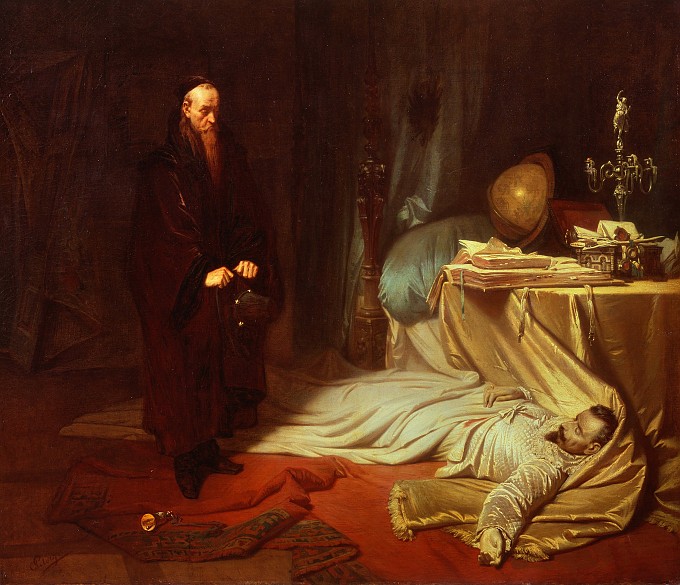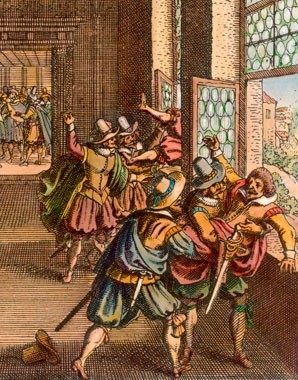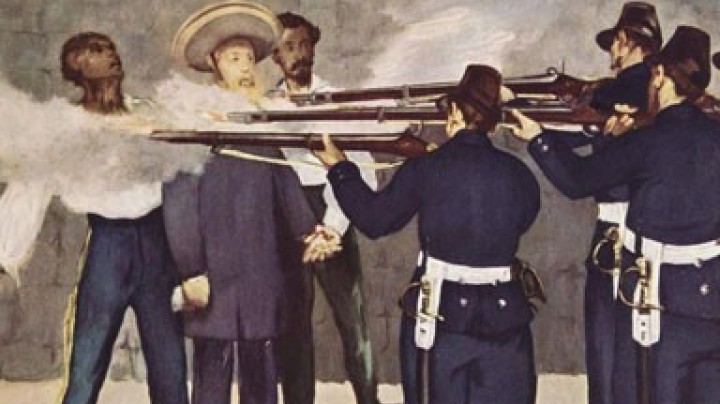Wallenstein: death by murder
Born into a Protestant Bohemian noble family, he rose to become the Catholic Emperor’s highest-ranking general: Albrecht von Wallenstein’s spectacular career ended with his murder.
Memoirs of Michael Heubel, commissioner of war, tax-collector, and judge by appointment of Count Schwarzburg-Rudolstädt, concerning the murder of Wallenstein in 1634On 25 February, by imperial order, Wallenstein, Generalissimus and Duke of Friedland, was murdered together with the counts Terzky und Kinski by a number of officers in Eger, on account of the discovery of high treason on his part, as desired by the king in Hungary Ferdinand III. I saw the room in Eger with two side doors bearing the ineradicable stain of Wallenstein’s blood, and also the staircase down which his corpse was dragged feet first, he who only an hour before had been a great duke and is now become the least and most unworthy of all men – so swiftly can the Lord put down the mighty from their seat.
Albrecht Wenzel Eusebius von Wallenstein, Emperor Ferdinand II’s most important military commander, is one of the best-known figures of the Thirty Years’ War. A member of a Bohemian Protestant noble family, he bettered his standing by converting to Catholicism, married money, and profited personally from the expropriations imposed on Protestants after the rebellion of 1618. In 1625 he was made Duke of Friedland, on account of which he is also known as the ‘Friedländer’.
In the 1620s, at his own expense, Wallenstein raised an army of twenty to forty thousand men including mercenaries of all confessions. The freedom to plunder was a regular part of his style of waging war: as the saying went, ‘War is fed by war.’ His military successes made Wallenstein too powerful in the eyes of the princes of the Empire, who dismissed him at the imperial diet of 1630 at Regensburg. At this point, Wallenstein even considered changing sides, establishing contact with the Swedes. In 1632, however, following the death of Tilly, he made a comeback with far-reaching powers as supreme commander of the imperial army.
Although the Battle of Lützen saw the death of Gustavus Adolphus, it was a victory for the Swedes. Putting the defeat down to treachery and cowardice, Wallenstein had twelve officers and five soldiers executed and put prices on the heads of forty deserters. Although he was soon successful in driving out the Swedes, his career was swiftly moving towards a terrible end: his independent pursuit of peace negotiations having aroused the suspicions of the Vienna court, Wallenstein was accused of high treason and deposed by a secret order of Ferdinand II issued in January 1634. On 25 February, having taken flight, he was murdered in Eger (present-day Cheb, Czech Republic) by five imperial officers, as were five of his own officers and their servant. The men who carried out the assault and murder were richly rewarded.
Opinion on Wallenstein is polarized: while for some he was a potential European peacemaker, others see him as a traitor who possibly wanted to overthrow the Habsburgs or even become king of Bohemia. In the nineteenth century in particular, under the influence of Friedrich Schiller’s Wallenstein trilogy, he rose to become a symbolic figure in German national consciousness.















